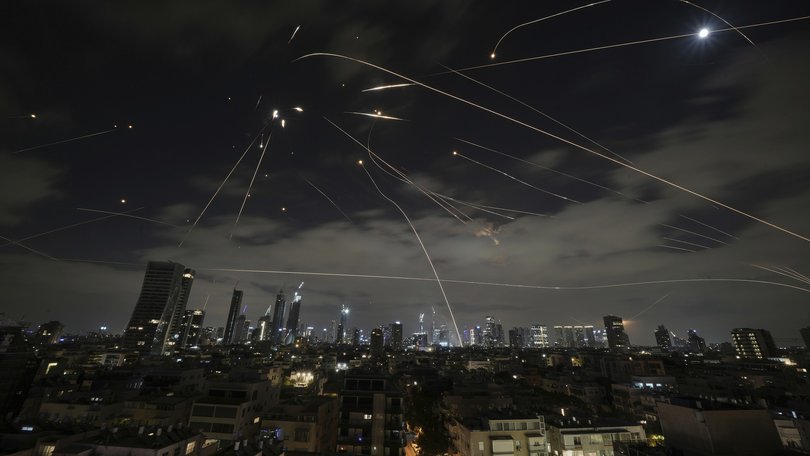EDITORIAL: What happens after Israel and Iran at war is unknown and carries its own risks
EDITORIAL: Overthrowing one regime does not guarantee its replacement will be any better.

Donald Trump has a reputation for being unpredictable and irascible.
He is fond on firing off messages on his own social media platform Truth Social, often IN CAPITAL LETTERS.
He is given to tossing out casual comments that have the capacity to influence world events, all the while standing near a chopper he is about to board as the whirling blades makes his voice almost inaudible.
Sign up to The Nightly's newsletters.
Get the first look at the digital newspaper, curated daily stories and breaking headlines delivered to your inbox.
By continuing you agree to our Terms and Privacy Policy.Or standing propped up against a doorway inside the presidential aircraft, Air Force One.
And there can never be a guarantee that he won’t abandon one path and take another.
It is highly possible this is but a tactic by the self-proclaimed master dealmaker. Ramp up the pressure then make a deal.
True to form, Trump’s latest messages around the will-he, won’t he, debate about the US getting more overtly involved in action against Iran left the world wondering on Thursday.
As a report emerged that Trump had told senior aides that he approved of attack plans for Iran, but was holding off on giving the final order to see if Tehran will abandon its nuclear program, he observed: “I have ideas on what to do but I haven’t made a final — I like to make the final decision one second before it’s due.”
One thing he has been clear on for a long time is his view that Iran cannot have a nuclear weapon.
So that has meant much analysis of whether or not Trump will approve the use of a so-called “Bunker Buster” bomb to destroy a key Iranian nuclear facility deep underground at the Fordo plant in the country’s northwest.
Of course it seems clear that Israel’s dominance in the conflict could not be possible without help already given by the US behind the scenes.
And in these matters we never know what is really going on until we know.
Could Israel already have a plan in action that would take out the plant without the need for the bomb?
Nevertheless as speculation swirled, consideration turned to the ramifications of the final decision.
In particular what it means should the conflict end with what Israel is pushing for — the end of the authoritarian Iranian regime.
Some warn that a pursuit of regime change could cause more instability.
Overthrowing one regime does not guarantee its replacement will be any better.
French President Emmanuel Macron on Tuesday pointed to just such a risk, highlighting the turmoil which followed in the aftermath of deposing Saddam Hussein in Iraq and Muammar Gaddafi in Libya.
Sometimes the reversion to type takes a little longer than anticipated.
For instance, the Taliban’s ongoing crackdown on women’s rights in Afghanistan shows its leaders have not changed their spots.
And so the uncertainty reaches much deeper and further than the current debate about Trump’s will-he or won’t-he.
Playing out quietly in the background is just what messages are being taken out of the conflict by other leaders.
Watching on with interest are Vladimir Putin in Russia and Xi Jinping in China.
